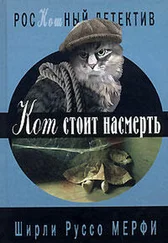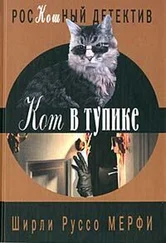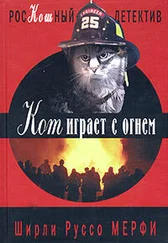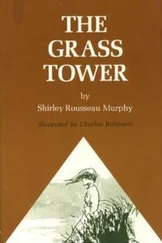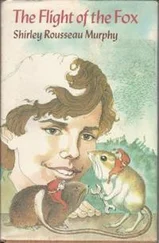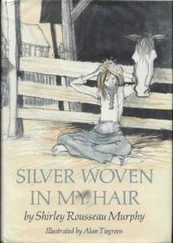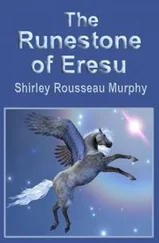They climbed at last, quite silent, down a stair in the outer wall, reached a bay halfway down where the cold night wind came in over a wide ledge. The wolves from below had gathered here onto the stones and outcroppings. The children stood looking down over the moon-washed land. A half-dozen wolves stood boldly at the edge letting the wind whip their fur and flatten their ears, then raised their voices in a wailing chorus.
“I will go to Tala-charen,” Ram said. “And soon.” His blocking of the Seer was stronger now—yet it was too late. HarThass had seen too much; would be an increased danger in what Ram had to do. Yet for a few moments he held a curtain against HarThass that blinded and confused the Seer. “There is need for the power the gods placed there. Was I . . .” He stared at Skeelie, then his eyes searched Fawdref’s. “Was I born to this, for this one thing, to bring the stone out into Ere?”
Fawdref’s answer was shaded with meaning. He made Ram understand that no person was born to one thing. That there was no power that could make a babe come into the world for any purpose. There was only the coming together of powers and events, the linking into a whole that made time and need bring an urgency upon life. This was how he was born, a culmination to that urgency. There was no one intelligence that could dictate his birth or would presume to. If he succeeded in bringing that power out, the forces of Ere would be bent into a new pattern; if he did not . . . but Fawdref broke off and turned to stare out over the land, his mind dark and watchful.
*
Tayba lay watching the morning’s soft light flood the grotto, catching at the labyrinth and soaring spans; she remembered the silver-caped Seer up there last night, Ram balanced on the thin bridge, the ring of their voices echoing hollowly. She turned to see the children, already up, bringing water from a pool then burrowing in her pack for breakfast, for they had eaten all their own food. She saw Dlos crouch over the little fire against stone, to lay mawzee cakes to warm, strips of mountain meat to toast. She watched the wolves, some distance away, eating from the kill that part of the pack had brought in during the night. Even now she was fearful of them—though she understood at last that here lay Ram’s safety, that they did not threaten him. She understood at last—as she should have long before—where Ram’s real danger lay. Where else, she thought, wondering at her own confusion, but with the Seer of Pelli? Had her very confusion been a part of that dark Seer’s twisting, insidious ways? Had he meant to use her in some way against Ram and the wolves? But he had not used her. Perhaps some other force had prevented that. For it seemed to Tayba that a terrible balance of forces surged and tilted around her. She wanted only to turn away from the turmoil; this was nothing she could touch or have influence over; was nothing she wanted any part of.
She rose and folded her blanket, remembered the children curled against wolves last night, sleeping in perfect safety, Fawdref’s great head sheltering Ram’s small head so she had lain awake a long time, watching them. She was tolerated here with the wolves, but she was not a part of this, nor ever could be. The children had played with wolf puppies around the fire last night, laughing, squealing with pleasure, and she had only been able to watch the bitch wolves in silence as they, perfectly at ease, had lain beside the human children and the cubs. I haven’t the faith Ram has, she thought. Even yet, now that I know they will not harm Ram, I can’t have faith like that. I am empty inside me—and I do not know why.
When they had breakfasted, they left the grotto. The wolves remained behind. The sadness of parting between children and wolves made Tayba turn away, to go on ahead into the dark, low tunnels. The children caught up at last, following the lantern light, and were very quiet.
SIX
As Tayba dressed for Venniver that night, she heard the wolves high on the plain and saw again Fawdref facing her, tongue lolling in a terrible grin as if he made fun of her. She saw him sleeping beside Ram, their heads cradled together, saw the little cubs playing, snarling and chewing the children’s hands innocently, tumbling, chasing Ram through the shadowed cave among resting wolves. Saw the wolves watching her, watching.
She closed the shutters so the howls were muffled, tied the throat of the amber wool, took up her cloak and went out along the back halls, past the door to the dining hall. Though the building was closed tight, the cold wind pushed in icy streams through the ill-fitting shutters, to meet itself around her bare ankles. Doors had been left ajar, and she could see the austere rooms, impersonal as Theel’s room. She supposed Venniver’s would be the same, bare and rough. She faced his door, touched the thick wood slabs, and knocked. When he did not answer, she lifted the latch and stepped in—stood staring.
The room was not bare, nor austere. It was a huge, rich room, its furnishings elegant, its colors luminous. She had seen nothing like this since she left Zandour. Tapestries covered the stone walls, opulent scenes in red and garnet and amethyst like spilled jewels. The floor was strewn with mawzee straw and rushes, thick and soft to her tread. The supper table was set near the fireplace, laid with silver cutlery, and plates that must surely have come from Carriol’s white-clay kilns, plates painted with flowers and birds and small animals among leaves. And the wine goblets were of silver, finely chased. The room was huge and square, heavy-raftered. A second chamber opened off it. These rooms must occupy the entire northwest corner of the Hall. They were furnished with heavy pieces of carved furniture like nothing else in Burgdeeth, smooth, polished. Ornately colored oil lamps hung from the rafters, their flickering light catching at the brilliant colors of tapestries and polished wood.
The bed was immense, tapestry covered. There were carved chests, intricately fashioned chairs; and the splendor of the tapestries laid a richness over all. She might have stepped into one of the finest houses in Ere. A room designed for an elegance of living she had not thought of in connection with Venniver—yet thought of now quite easily. It fit the man—fit him perfectly.
There was another, narrower door at the left, but she knew instinctively that Venniver was not there. She pulled it open and saw a room for private bathing, with what must be a drain to carry the wash water away, and a tall cabinet for clothes.
She closed the door and crossed the room, stopping to run her hand over a chair covered with soft hides. She tried it, sinking down deliciously—then rose quickly. This was Venniver’s chair and very big, swallowing her. She didn’t like the sudden sense of being possessed by it.
In the smaller of the two rooms stood a huge painon-wood table with writing crock and quills, and with a row of leather-bound books at one end. Books with their own belted brass covers, each locked with a brass lock. She could imagine Venniver sitting at the table, ciphering, making up the accounts of the town, she supposed. But why would account books be so carefully locked?
She returned to the main room, found a striking stone on the hearth and lit the fire laid ready. And for no reason, the memory of the grotto filled her mind, and the dark wolves whose eyes searched hers with the intelligence of men; and an unease gripped her that took all her strength to put down.
She turned back to the fire at last, but her mind could not settle. The wolves seemed to reach, to watch her so she was not alone there. And there was something else watching, seeing too much, appraising her. She knelt quickly and flung a handful of kindling into the fire so it flared up, then rose to pace the room, scowling. Well if the room was peopled with wolves and Seers, let them see what they chose to see—she was not above being an exhibition if that was what they wanted.
Читать дальше
![Ширли Мерфи The Shattered Stone [calibre] обложка книги](/books/436059/shirli-merfi-the-shattered-stone-calibre-cover.webp)
